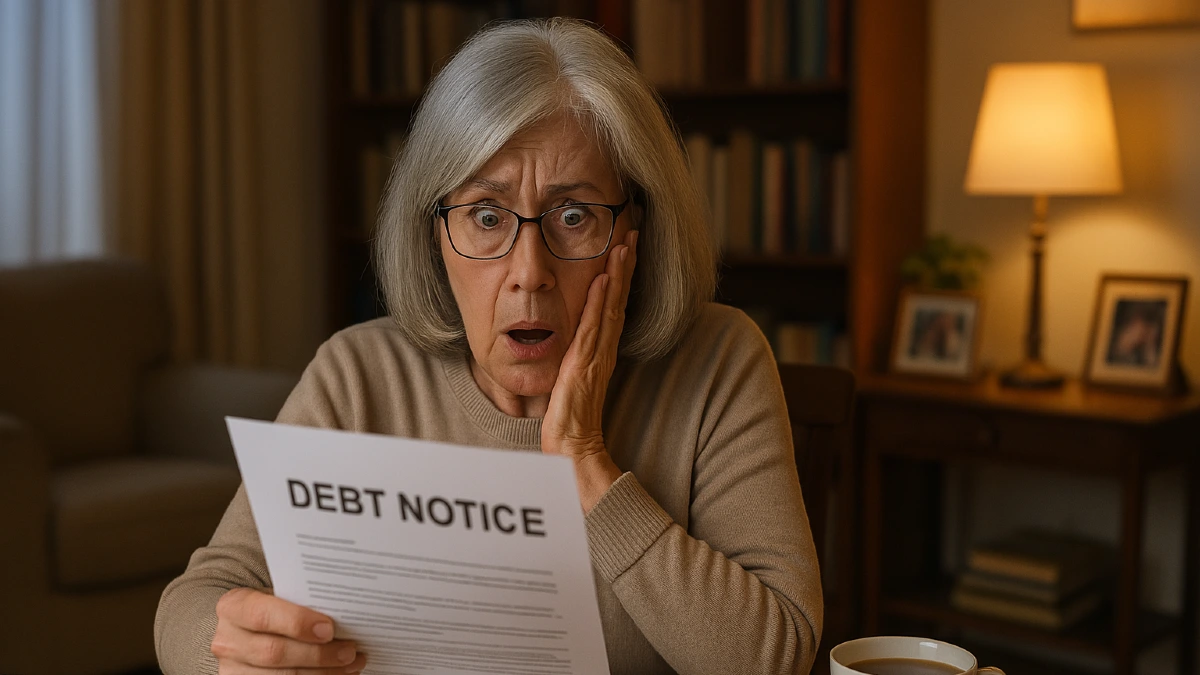Widow Discovers $120K in Hidden Debt After Husband’s Death—What Are Her Rights?

“I discovered $120,000 in credit card debt after my husband passed away. He had made me the primary cardholder without my knowledge, and now at 70, while battling stage 4 cancer, I’m trying to understand my obligations,” shares Sarah Miller from Long Island. Her story echoes a disturbing pattern of hidden financial obligations discovered by surviving spouses, raising crucial questions about liability and legal protections.
Getting to know your spouse’s debt liability in New York
In New York State, the rules governing debt responsibility after a spouse’s death can be complex. According to Richard Thompson, a New York-based estate attorney specializing in elder law, surviving spouses aren’t automatically responsible for all debts left behind by their deceased partners.
However, the situation becomes more complicated when the surviving spouse is listed as a primary account holder on credit cards or loans.
The Impact of Primary vs. Authorized User Status
Being a primary cardholder carries significantly different legal implications than being an authorized user. Lisa Martinez, a consumer protection attorney with the National Consumer Law Center, explains that primary cardholders bear full responsibility for the debt, regardless of who made the charges. However, legal remedies may be available if credit cards were opened fraudulently or without proper consent.
Assessing Your Financial Situation
When facing unexpected debt after a spouse’s death, conducting a comprehensive financial assessment becomes crucial. In Sarah’s case, her assets include:
(i). A mortgage-free home valued at approximately $650,000
(ii). Money market accounts totaling $200,000
(iii). An IRA worth $45,000
(iv). Life insurance proceeds of $30,000
(v). Monthly income from Social Security and contract work
Financial advisor Michael Greene of Elder Financial Planning Services notes that these assets provide important leverage in negotiating with creditors. “Having substantial assets doesn’t mean you must liquidate everything to pay debts. Strategic planning can help preserve wealth while addressing creditor claims.”
Legal Rights and Protections for Elderly Widows
The Equal Credit Opportunity Act (ECOA) and the Truth in Lending Act (TILA) provide important protections for consumers, especially in cases involving potential financial abuse. According to the Consumer Financial Protection Bureau, credit cards opened without proper consent or through misrepresentation may be challenged under these federal laws.
Options for Debt Resolution
Several paths exist for addressing inherited debt situations. Bankruptcy attorney Jennifer Wilson outlines the main approaches:
Credit Counseling: Nonprofit credit counseling agencies can provide free or low-cost assistance in evaluating options and potentially negotiating with creditors. The National Foundation for Credit Counseling maintains a network of certified counselors specializing in elder financial issues.
Legal Challenges: When credit cards were opened without proper consent, working with a consumer protection attorney may help challenge the debt’s validity. The statute of limitations for fraud claims in New York provides time to investigate and pursue legal remedies.
Debt Settlement: For legitimate debts, negotiating reduced payoff amounts might be possible. Many creditors offer hardship programs for elderly individuals facing health challenges.
Strategic Asset Management
Financial planner Robert Anderson, specializing in retirement planning, suggests carefully evaluating which assets to preserve versus utilize for debt resolution. “Maintaining sufficient income for ongoing medical care and living expenses must be prioritized. Sometimes, strategic partial asset liquidation combined with debt settlement provides the best path forward.”
Healthcare Considerations and Financial Planning
For individuals battling serious health conditions while managing debt, coordinating healthcare and financial planning becomes essential. The American Cancer Society’s Financial Navigation Program offers resources for cancer patients facing financial challenges, including guidance on managing medical expenses alongside other obligations.
Steps for Moving Forward
The path to financial stability after discovering hidden debt requires careful planning and professional guidance. Consider these essential steps:
Document Everything: Gather all financial records, including credit card statements, loan documents, and any communication about accounts.
Seek Professional Help: Consult with an elder law attorney familiar with New York state laws regarding spousal debt and estate issues.
Protect Current Income: Ensure that Social Security benefits and retirement accounts are properly protected under applicable laws.
Long-term Financial Security
While addressing immediate debt concerns is crucial, planning for long-term financial security requires careful consideration. Financial gerontologist Sarah Adams emphasizes the importance of creating a sustainable monthly budget that accounts for ongoing medical expenses and potential future care needs.
Resources and Support
Several organizations provide support for elderly individuals facing financial challenges:
The National Council on Aging offers benefits checkups and financial counseling specifically for seniors.
New York’s Office for the Aging provides free legal services and financial counseling for residents over 60.
The Elder Financial Safety Center combines financial, legal, and law enforcement resources to protect elderly individuals from financial exploitation.
Bottom Line
Recovering from discovered debt while managing health challenges requires patience and professional guidance. Understanding your rights, protecting essential assets, and working with qualified professionals can help create a manageable path forward. Remember that many organizations and professionals specialize in helping elderly individuals navigate complex financial situations while protecting their rights and dignity.
For immediate assistance or to learn more about your rights regarding inherited debt, contact the New York Department of Financial Services Consumer Hotline or visit their website for resources specifically designed for elderly residents facing financial challenges.





